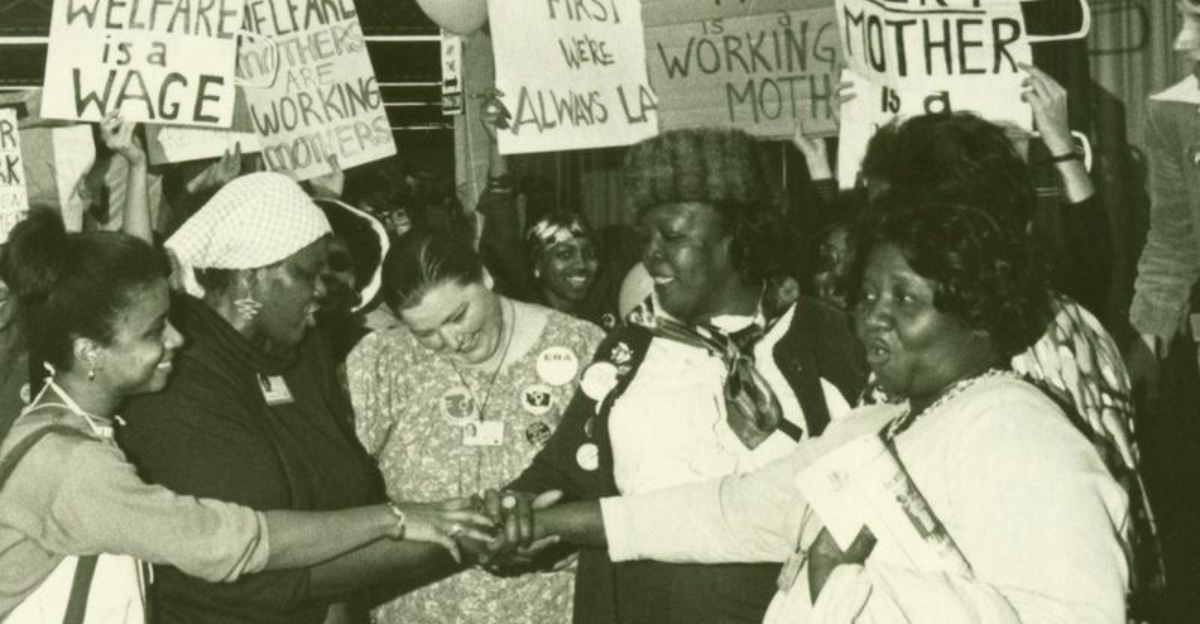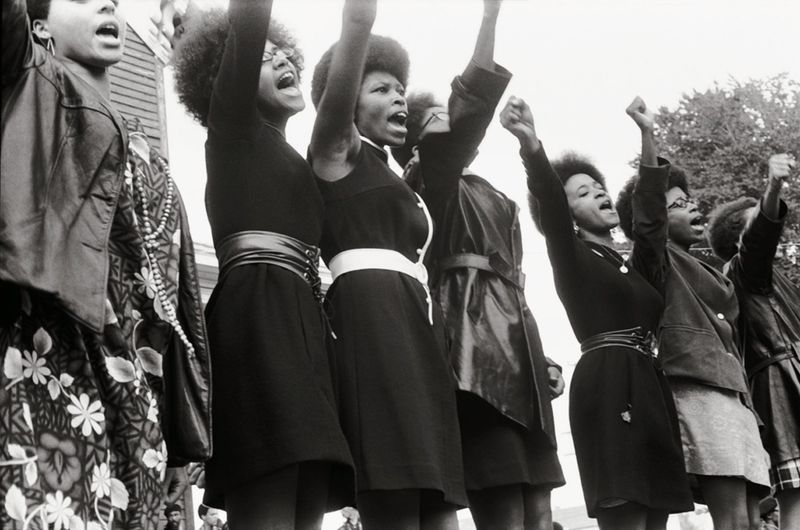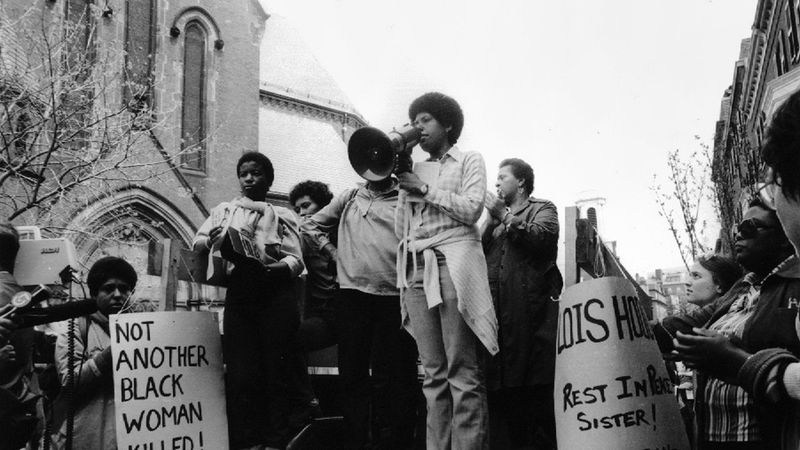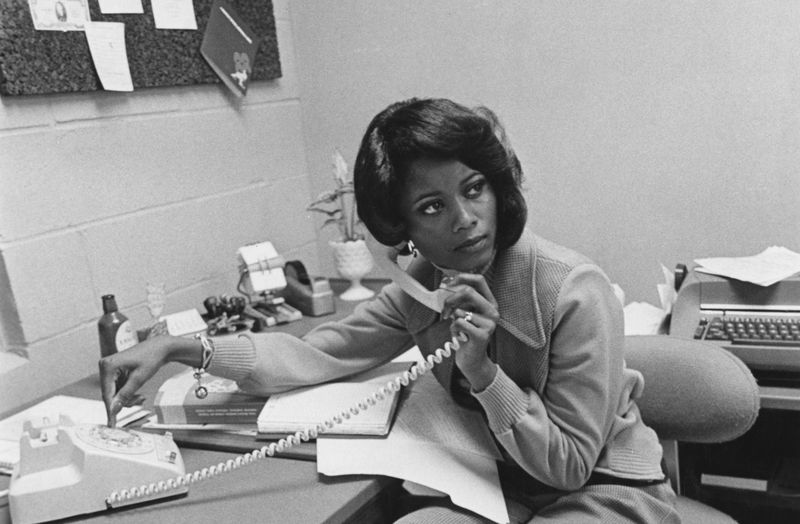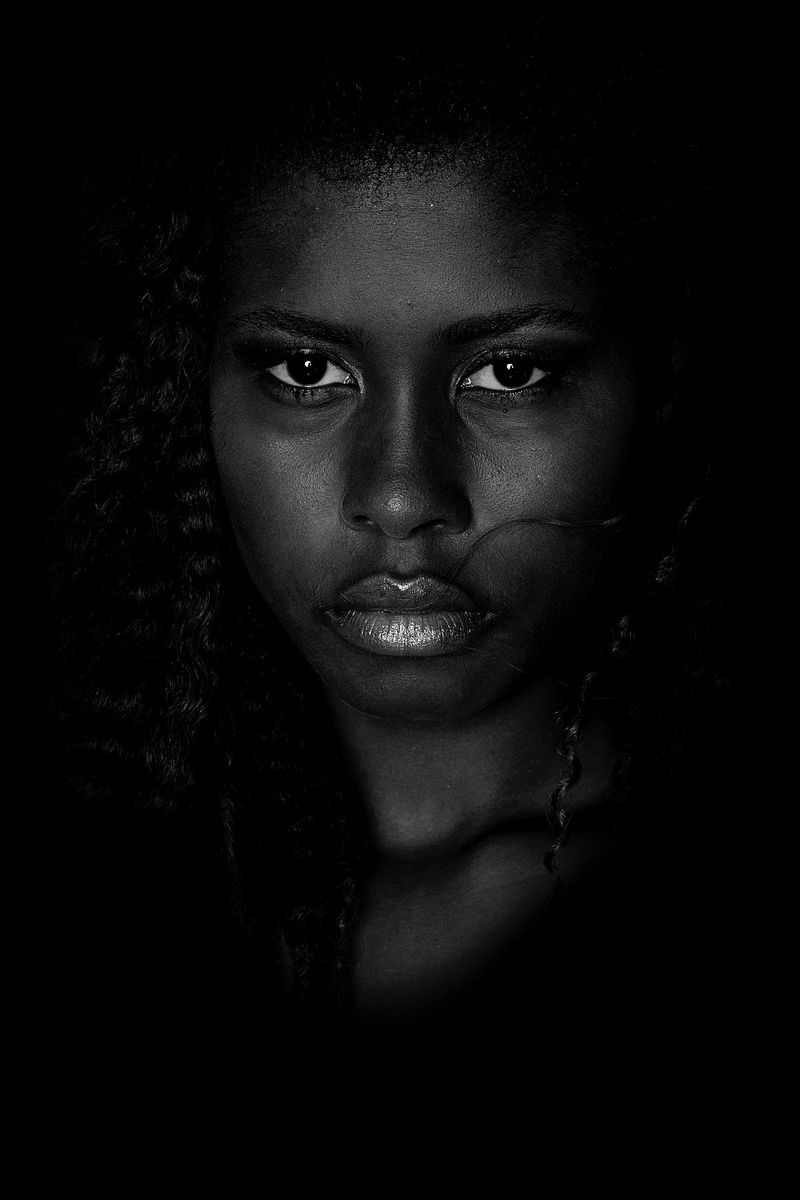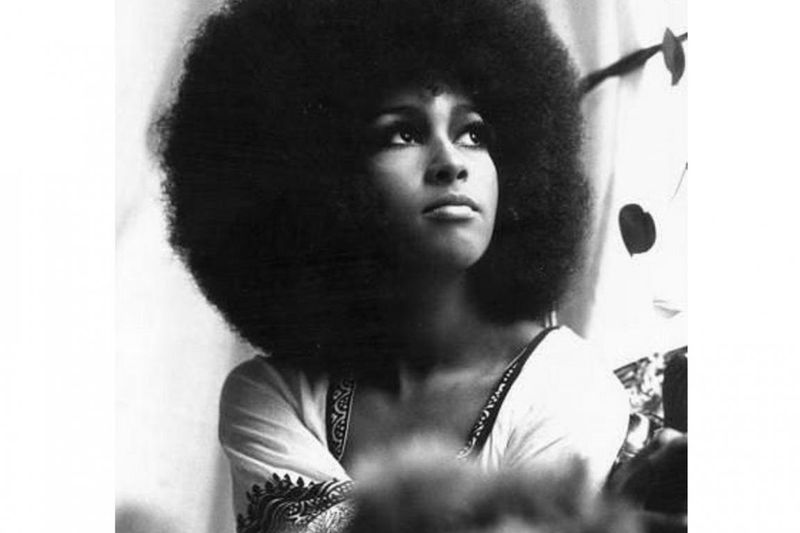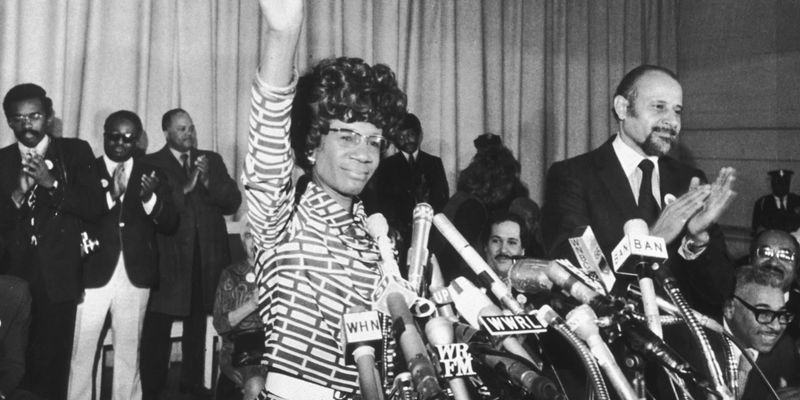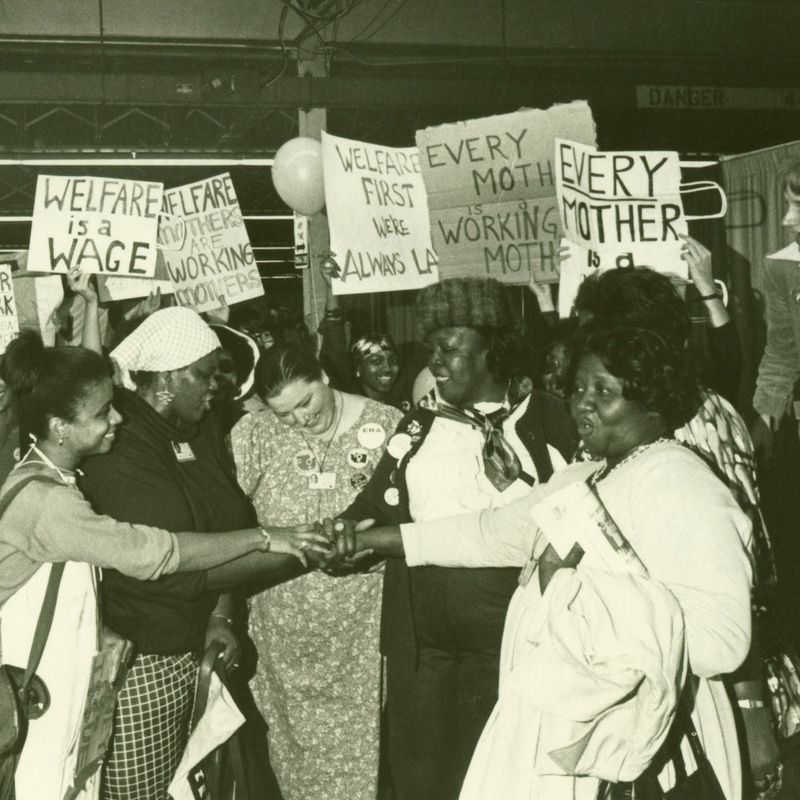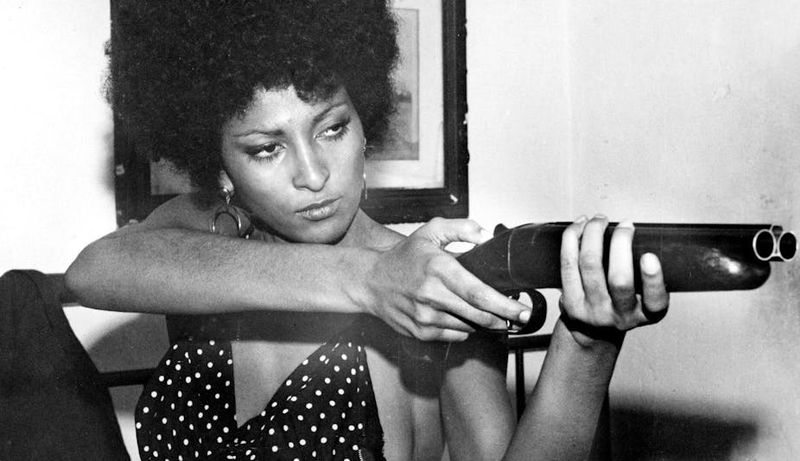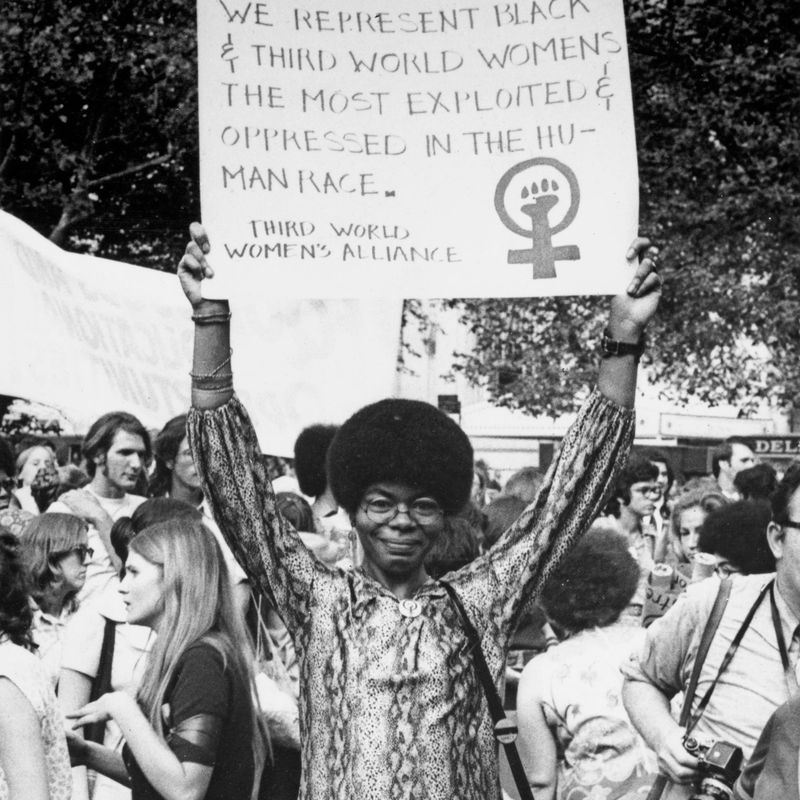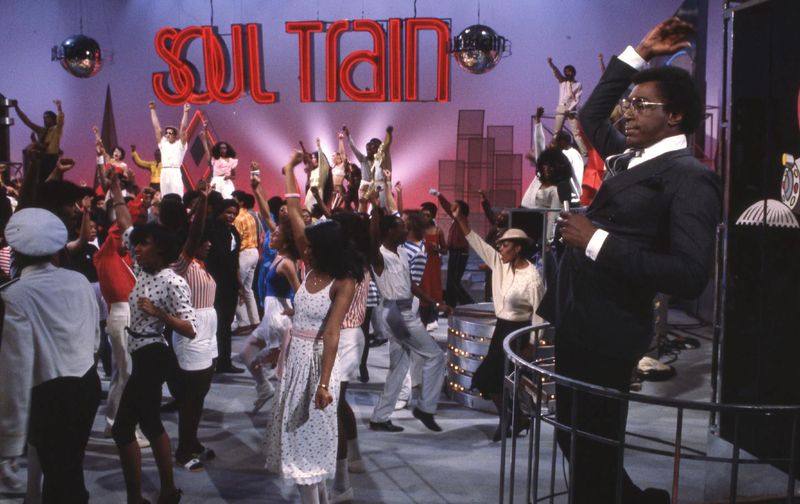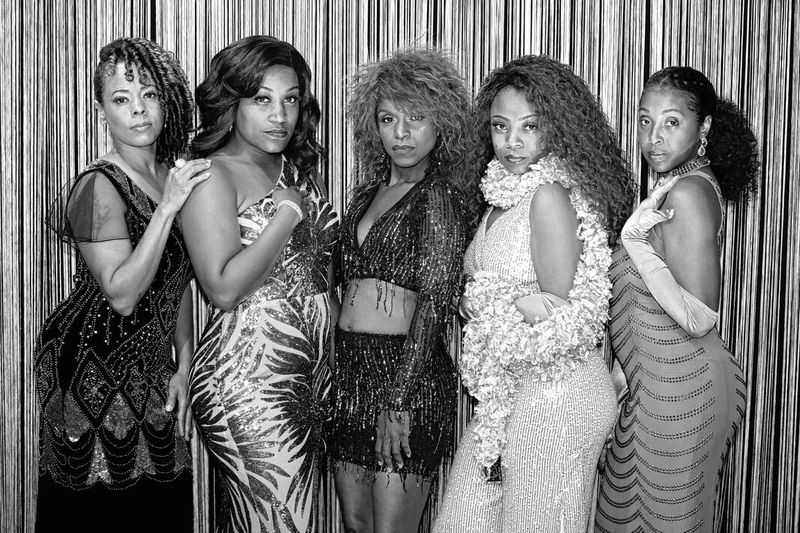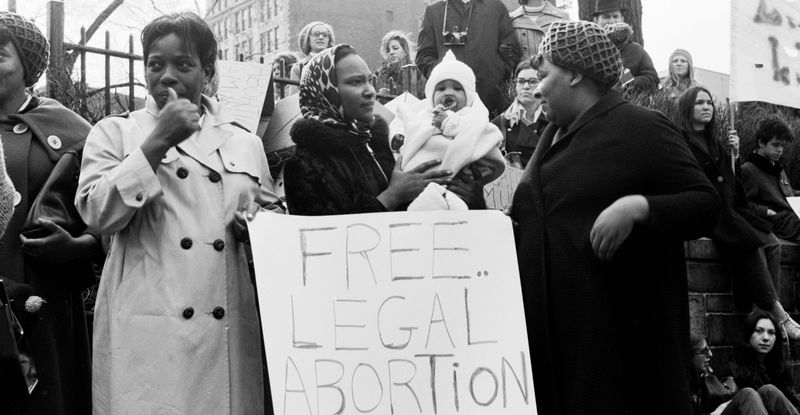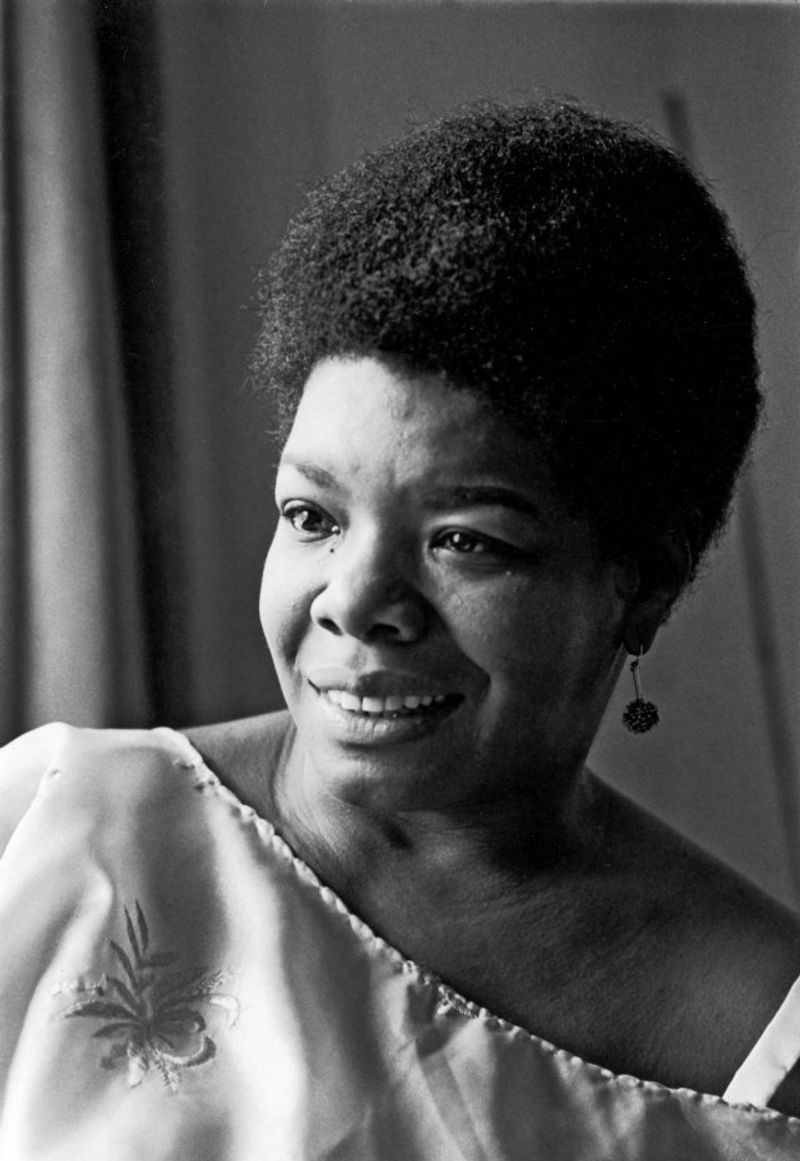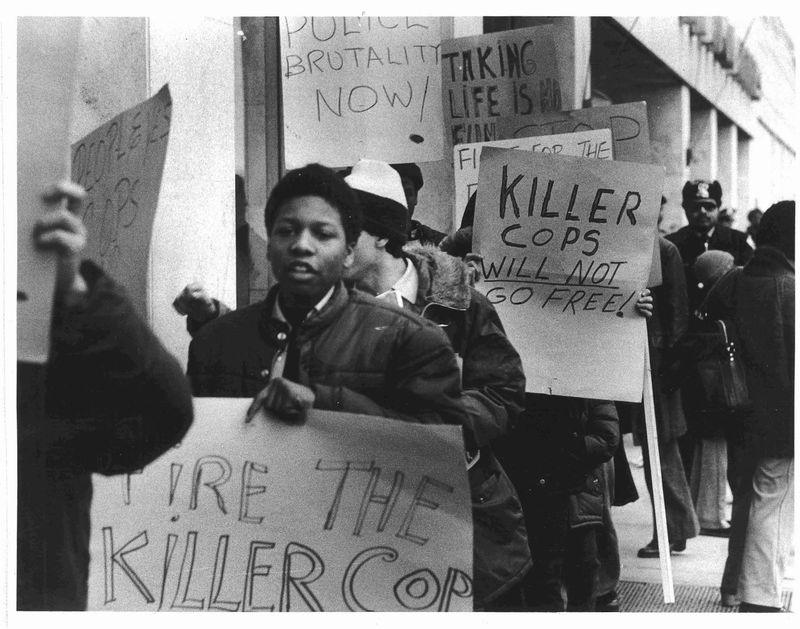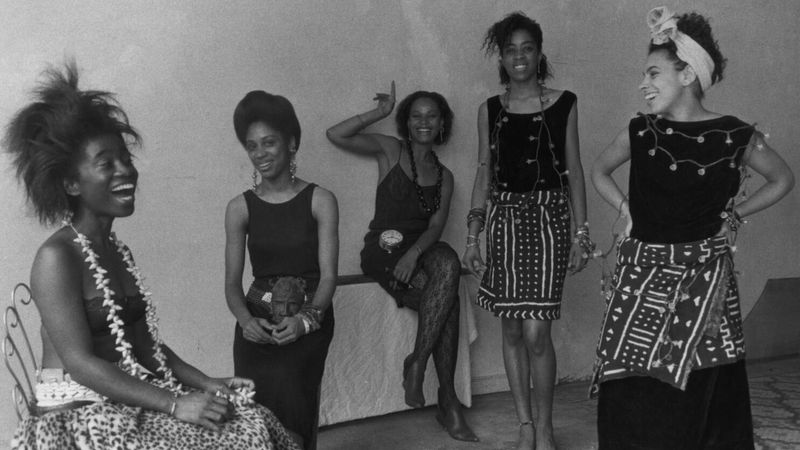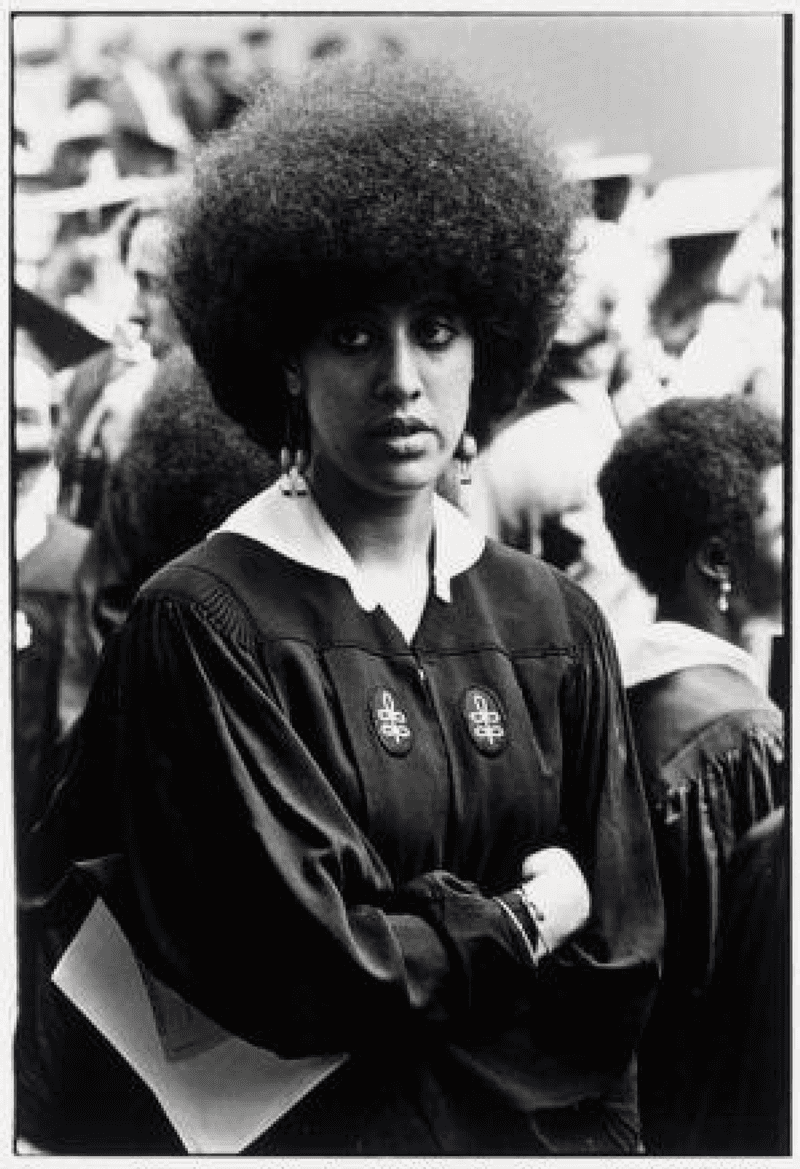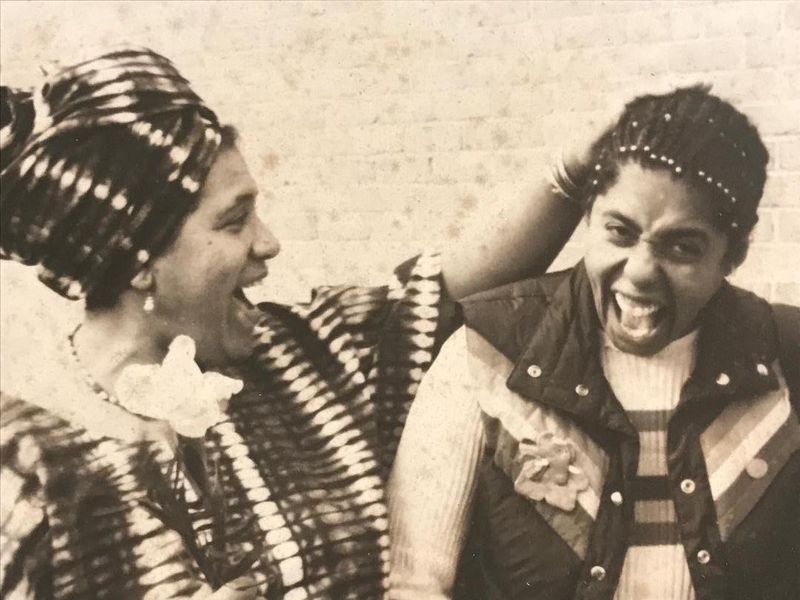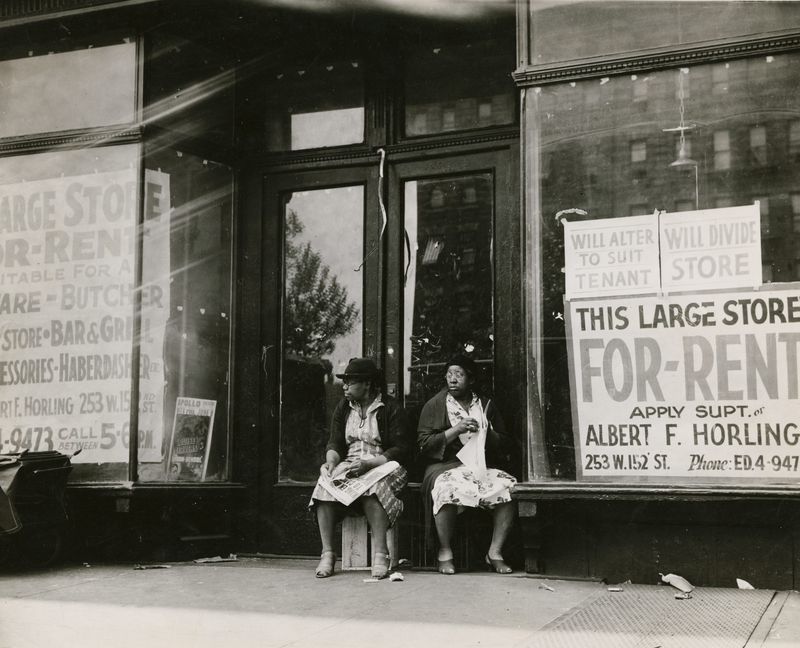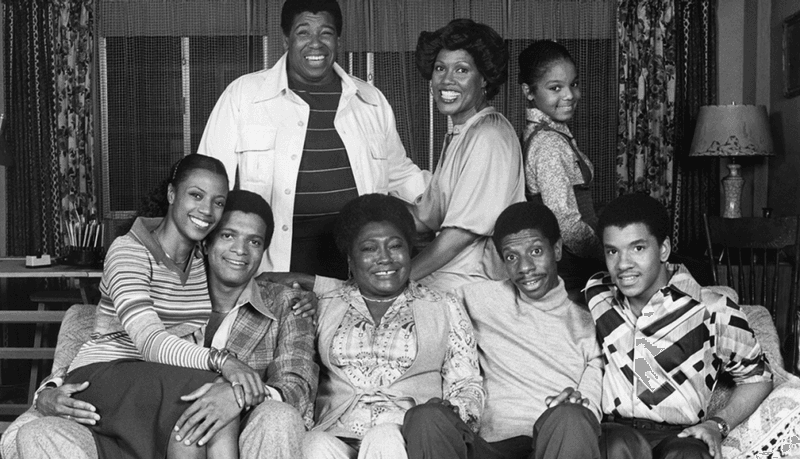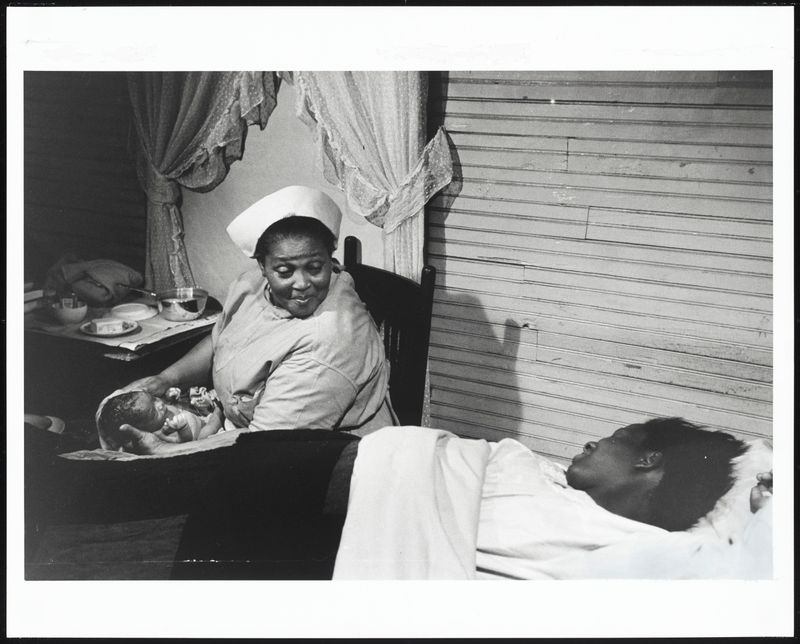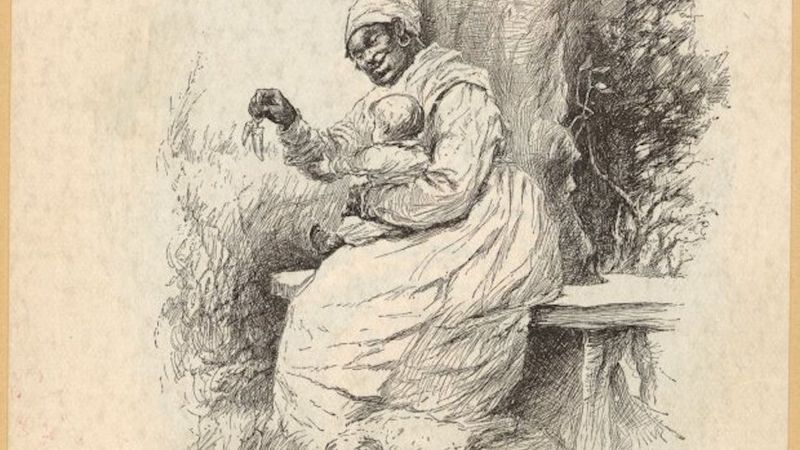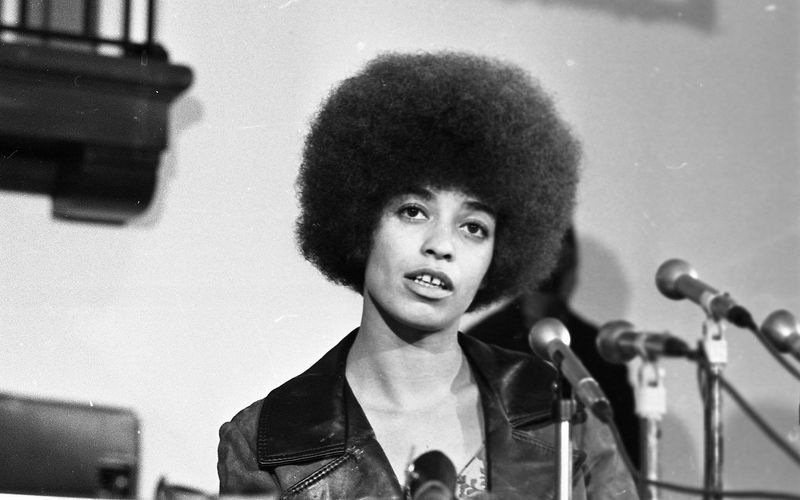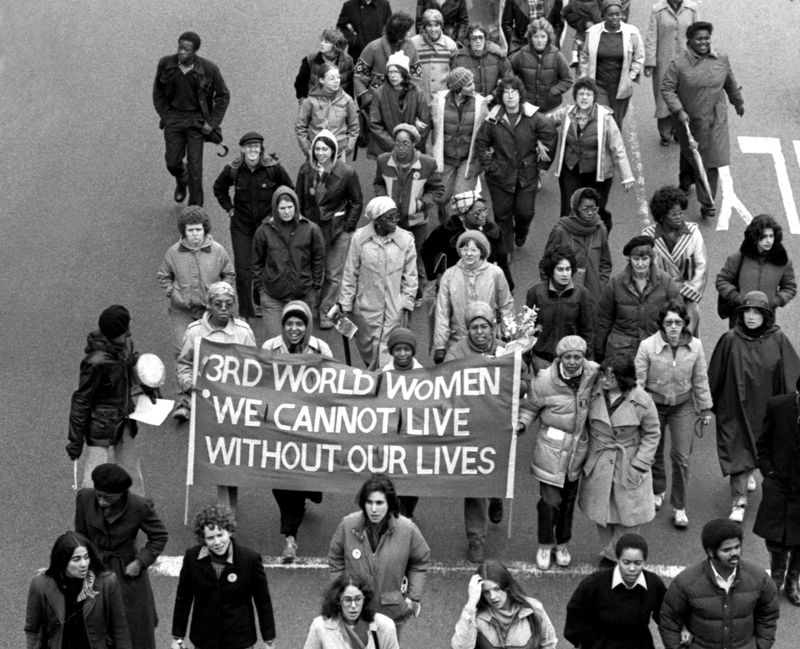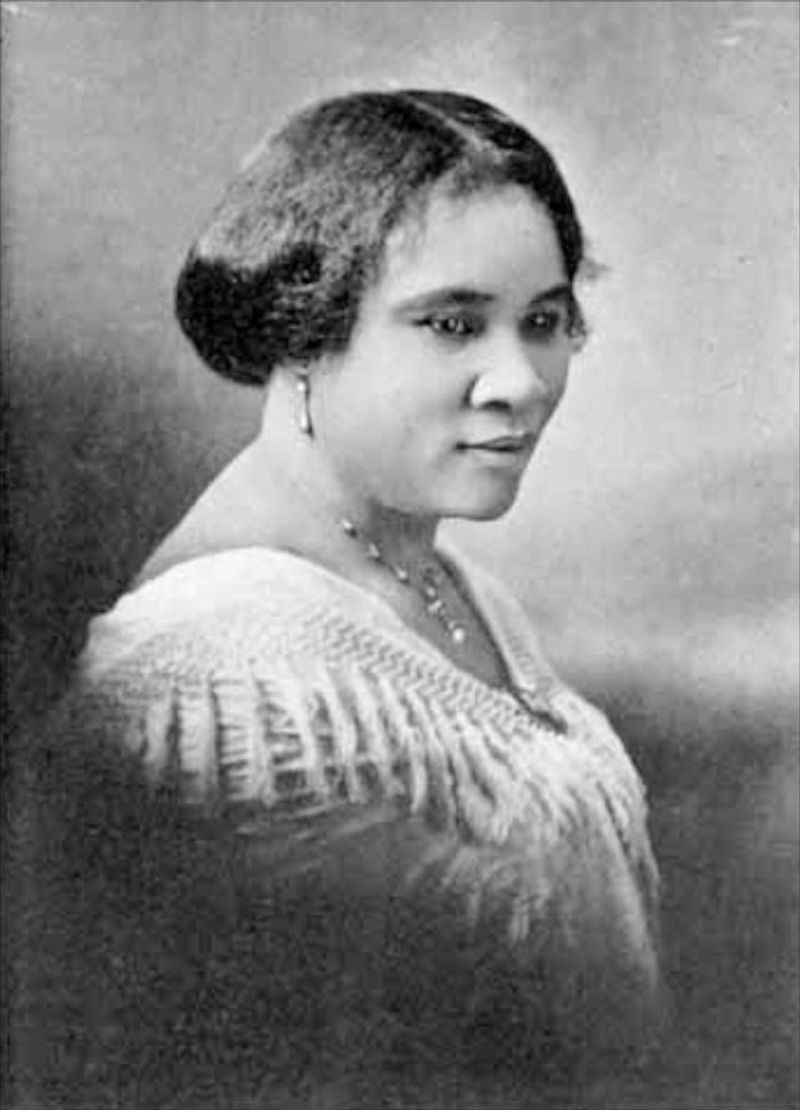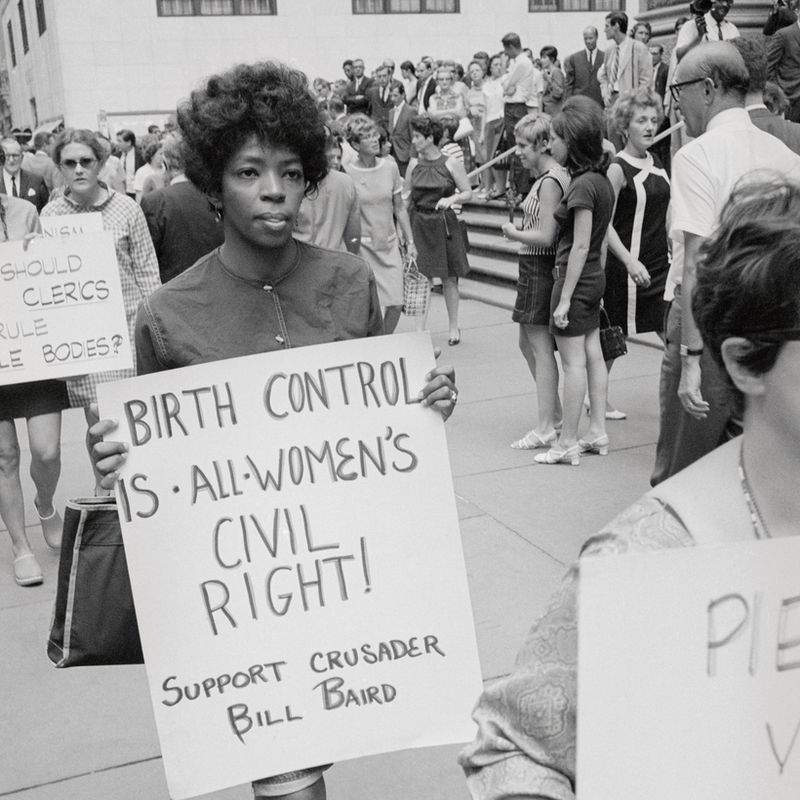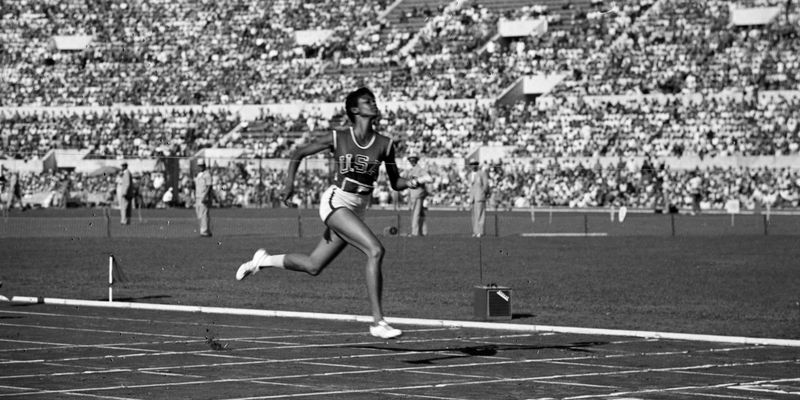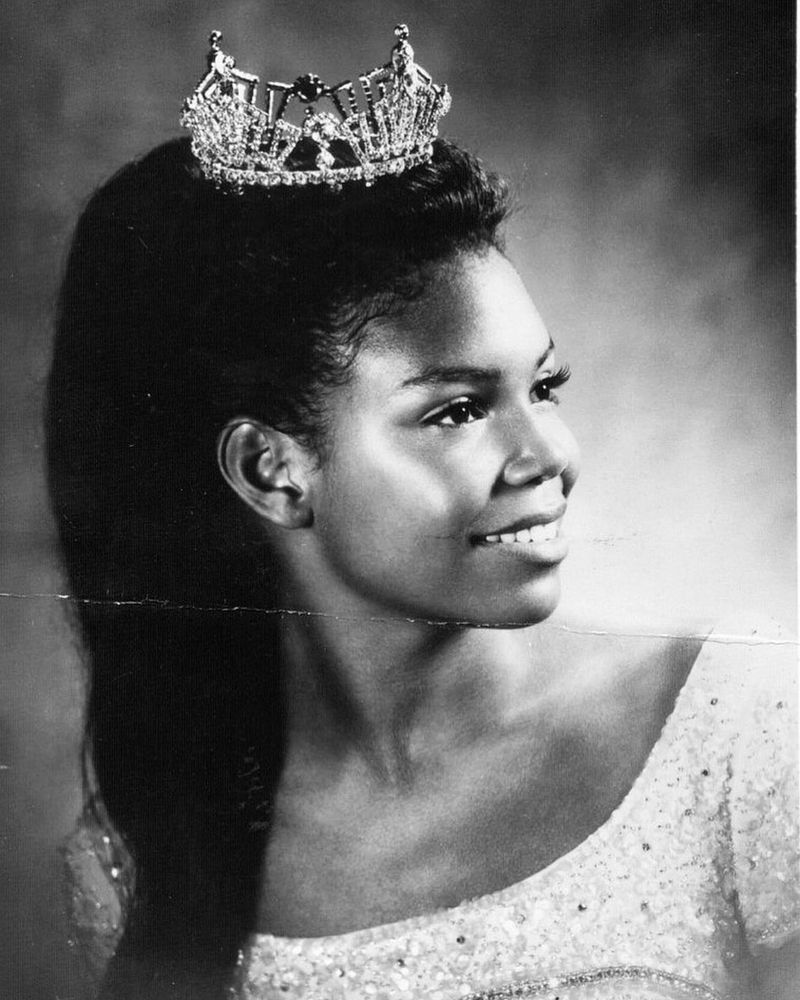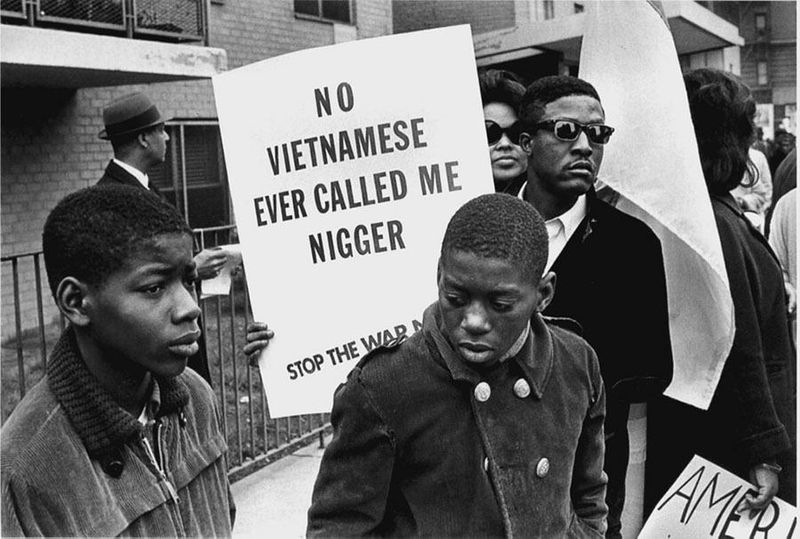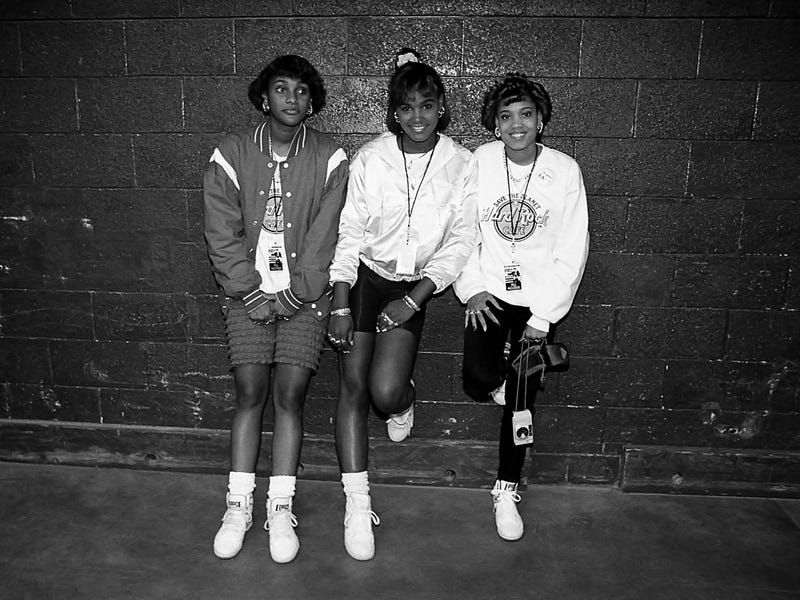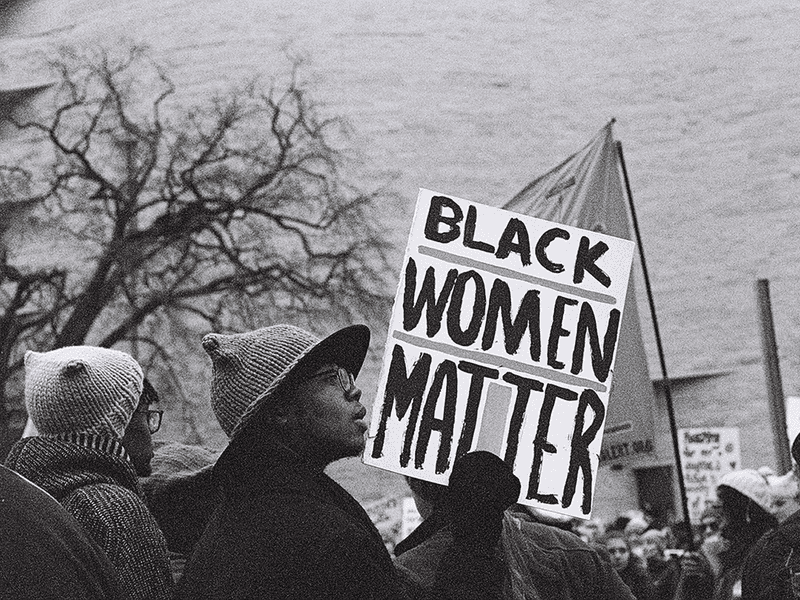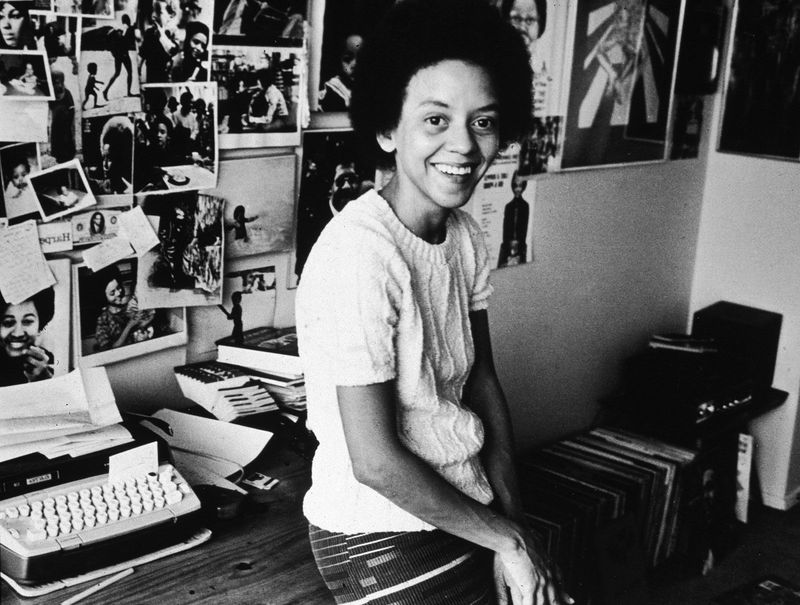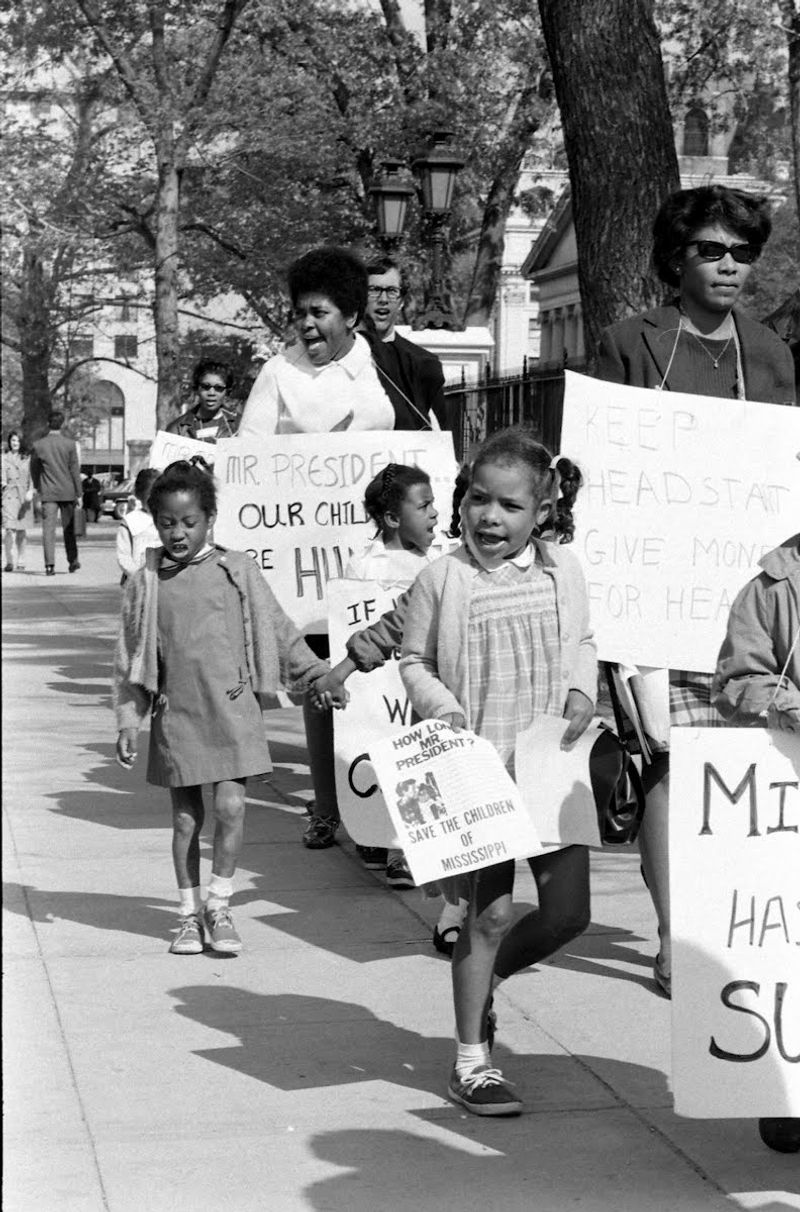The 1970s was a transformative era for Black women in America. As they navigated the challenges of racism and sexism, their voices became crucial in socio-political and cultural movements. From the Black Power movement to the rise of Black feminist thought, Black women made significant strides in various fields despite systemic barriers. This blog post explores 35 realities they faced, emphasizing their resilience and contributions. Each aspect, from politics and entertainment to health and workplace dynamics, paints a vivid picture of life for Black women during this pivotal decade.
1. The Black Power Movement’s Influence
Amid the fervent chants of “Black Power,” Black women stood at the heart of the movement. Their contributions were both profound and multifaceted, yet often overshadowed by their male counterparts. These women were community organizers, advocates, and leaders. They fought for racial justice and the upliftment of the Black community. However, recognition wasn’t easy. In a movement that sometimes sidelined women’s voices, they had to assert their presence and importance continually. This struggle for acknowledgment mirrored larger societal dynamics, where Black women’s efforts were frequently invisible, despite being pivotal.
2. Rise of Feminist Consciousness
In cozy living rooms and bustling community centers, Black women were nurturing a feminist consciousness that addressed their unique struggles. Unlike the mainstream feminist movement, which often overlooked race and class, Black women formed their own spaces. The Combahee River Collective was a prime example, articulating Black feminist thought that resonated deeply. These discussions weren’t just theoretical—they inspired action. Black women critiqued traditional feminism’s blind spots while advocating for an intersectional approach. This era laid the groundwork for future movements, emphasizing that race, gender, and class were inseparable.
3. Workplace Discrimination
Despite the promises of the Civil Rights Act of 1964, Black women found themselves navigating a terrain riddled with discrimination. Many were confined to low-wage jobs, often in domestic work or service sectors. The racial and gender pay gap was glaring. In offices and factories, they faced both overt racism and subtle biases. Yet, Black women’s resilience shone through. They organized, formed networks, and demanded better opportunities. Every promotion achieved or bias challenged was a testament to their determination. Their stories of perseverance are a reminder of the ongoing fight for equality in workplaces.
4. The “Angry Black Woman” Stereotype
In media portrayals and everyday interactions, the “angry Black woman” stereotype reared its ugly head. Assertive Black women were quickly labeled “aggressive,” their passion misconstrued as hostility. This trope was a tool to silence them, dismissing valid concerns and contributions. It was a formidable barrier, affecting both personal and professional realms. Yet, Black women resisted. They embraced their voices and challenged these narrow perceptions. Through literature, art, and activism, they reshaped narratives, asserting that they were multidimensional individuals with legitimate grievances and aspirations.
5. Natural Hair Stigma
Wearing one’s natural hair was not just a fashion statement in the 1970s—it was a political act. Afros, in particular, symbolized pride and defiance against Eurocentric beauty norms. However, this expression of identity faced resistance. Many workplaces saw natural hair as “unprofessional,” pressuring Black women to conform. Despite the stigma, the natural hair movement gained momentum. Women embraced their curls, coils, and kinks, celebrating their heritage. This movement was more than skin deep; it was about reclaiming autonomy and rejecting societal pressures. The echoes of this struggle continue to reverberate today.
6. The First Black Women in Politics
Shirley Chisholm’s journey in politics was nothing short of trailblazing. As the first Black woman elected to Congress in 1968, she shattered ceilings and set precedents. Her presidential run in 1972 was historic, though fraught with both racism and sexism. Chisholm spoke directly to the needs of the marginalized, pushing for policies that addressed systemic inequities. Her campaign slogan, “Unbought and Unbossed,” encapsulated her fearless spirit. She paved the way for future generations of Black women in politics, showing that representation matters and that change is possible from within.
7. The Myth of the “Welfare Queen”
The mid-1970s saw the rise of the “welfare queen” trope, a damaging narrative perpetuated by politicians like Ronald Reagan. This stereotype unfairly targeted Black single mothers, painting them as deceitful and lazy. It fueled harmful policy debates and ingrained societal biases. However, the reality was starkly different. Many Black women on welfare were struggling against systemic barriers, striving to provide for their families. Activists and scholars worked tirelessly to dismantle this myth, highlighting the structural issues at play. Their efforts underscored the importance of empathy and understanding in shaping social policies.
8. Blaxploitation Films
In the dimly lit theaters of the 1970s, Blaxploitation films burst onto the scene, offering a mix of empowerment and controversy. Movies like “Coffy” and “Foxy Brown” showcased strong Black female leads who were both fierce and unapologetic. Yet, these films often sexualized their protagonists, reflecting broader societal tensions. While they provided visibility, they also perpetuated stereotypes. Nevertheless, for many Black women, these films were a rare opportunity to see themselves as heroines. They sparked discussions about representation in media, paving the way for more nuanced portrayals in future decades.
9. Forced Sterilization & Reproductive Rights Battles
The 1970s bore witness to grave injustices in reproductive rights, particularly towards Black women. Coercive sterilization practices, exemplified by the Relf Sisters case, highlighted systemic abuses. Many Black women were sterilized without informed consent, a violation of their autonomy. Simultaneously, they fought for access to birth control and abortion, emphasizing the necessity of reproductive freedom. Activists rallied against these injustices, demanding accountability and change. Their advocacy reshaped the discourse around reproductive rights, highlighting the intersection of race, gender, and class. It was a pivotal moment in the ongoing fight for bodily autonomy.
10. The Crack Epidemic’s Beginnings
By the late 1970s, the ominous shadow of the crack epidemic began to loom over Black communities. Drugs flooded neighborhoods, leading to devastating social consequences. As mass incarceration ensued, many Black women found themselves as sole providers, shouldering immense burdens. Families were fractured, and community structures strained. Despite these challenges, Black women displayed remarkable resilience. They organized support networks, advocated for policy changes, and raised awareness about the systemic roots of the crisis. Their efforts laid the groundwork for future reforms and highlighted the need for a compassionate approach to addressing drug-related issues.
11. Soul Train & Black Beauty Standards
“Soul Train,” the iconic music and dance show, was more than entertainment—it was a celebration of Black culture and beauty. On its vibrant set, Black beauty standards were both reinforced and challenged. Dancers flaunted afros, braids, and bold fashion choices, embracing their heritage with pride. Yet, Eurocentric ideals still lingered, often dominating mainstream narratives. Nonetheless, “Soul Train” offered a platform for Black expression and identity, becoming a cultural touchstone. It inspired countless individuals to embrace their uniqueness, fostering a sense of community and belonging. The show’s impact on beauty standards continues to resonate today.
12. Black Women in Music Dominance
The music charts of the 1970s were dominated by Black female artists whose voices were both powerful and transformative. Icons like Aretha Franklin, Diana Ross, and Donna Summer dazzled audiences, crafting soundtracks for a generation. Their artistry transcended boundaries, yet the music industry was not without its pitfalls. Exploitative practices were rampant, with many Black women facing inequitable contracts and limited control over their work. However, their resilience shone brightly. These artists not only entertained but also inspired, leaving an indelible mark on music history. Their legacy is a testament to talent overcoming adversity.
13. Domestic Violence & Lack of Support
In the shadows of homes and communities, many Black women faced the harsh reality of domestic violence. During the 1970s, support systems were scarce, and legal protections minimal. The intersection of race and gender often meant their struggles were overlooked. Yet, they bravely sought change. Black feminist groups emerged, addressing the nuances of domestic violence within their communities. They advocated for shelters, legal reforms, and greater awareness. Their efforts laid the groundwork for more inclusive support networks, ensuring that Black women had spaces to seek refuge and healing. This advocacy continues to inspire today.
14. The Rise of Black Women Writers
The literary world of the 1970s witnessed a renaissance of Black women writers who reshaped narratives and challenged norms. Toni Morrison, with works like “Sula,” along with Alice Walker and Maya Angelou, brought Black women’s stories to the forefront. Their writings explored themes of identity, resilience, and community. These authors were not just storytellers; they were cultural critics, shedding light on the complexities of Black womanhood. Their voices resonated deeply, inspiring generations of readers and writers. This era marked a pivotal moment in literature, where Black women’s experiences were finally given due prominence.
15. Police Brutality & Distrust of Law Enforcement
In many Black communities during the 1970s, interactions with law enforcement were fraught with tension and distrust. Instances of police brutality were disturbingly common, disproportionately targeting Black individuals. Black women, too, were not spared. They faced harassment and violence, often with little recourse. In response, they organized and protested, demanding accountability and systemic change. Their activism was rooted in a desire for safe and just communities. While progress was slow, their relentless efforts highlighted the urgent need for reform. This legacy of resistance continues to inform contemporary movements against police violence.
16. The “Strong Black Woman” Burden
The stereotype of the “strong Black woman” emerged as both a source of pride and a burden. Black women were celebrated for their resilience but often at the cost of their vulnerability. Society expected them to endure hardships silently, a damaging expectation that persists today. This narrative ignored the emotional and mental toll it took. However, Black women began challenging these notions, advocating for spaces where they could express vulnerability without judgment. They highlighted the importance of self-care and community support, recognizing that strength also meant acknowledging one’s needs and boundaries.
17. Limited Access to Higher Education
In the halls of academia during the 1970s, Black women pursued higher education with determination, despite facing systemic barriers. While more Black women entered colleges, they often encountered biases and limited resources. Scholarships were scarce, and institutional support minimal. Yet, their presence signaled a shift. They formed study groups, advocacy organizations, and cultural clubs, creating spaces for mutual support. Education became a tool for empowerment and change, enabling them to challenge societal norms. Their perseverance paved the way for future generations, highlighting the transformative power of education. Their stories inspire ongoing efforts for educational equity.
18. Black Lesbian Visibility
In the tapestry of movements that defined the 1970s, Black lesbian voices began to emerge with clarity and strength. Visionaries like Audre Lorde and Barbara Smith broke silences, advocating for lesbian identity within Black communities. These women navigated the intersections of race, gender, and sexuality, often facing marginalization from both mainstream LGBTQ+ and Black movements. Despite challenges, they forged networks and spaces for support and dialogue. Their work laid the foundation for future advocacy, emphasizing the importance of intersectionality. Through poetry, prose, and activism, they enriched cultural and political landscapes, fostering deeper understanding and inclusivity.
19. Housing Discrimination
In cities across America, housing discrimination was a formidable barrier for Black women seeking economic mobility. Redlining and segregation defined many neighborhoods, limiting access to quality housing and financial opportunities. Black women, often heads of households, bore the brunt of these discriminatory practices. They faced higher rents, lower property values, and fewer resources. Yet, they resisted. Through community organizing and legal challenges, they fought for fair housing policies. Their resilience and advocacy were crucial in highlighting systemic inequities. These efforts underscored the interconnectedness of housing, wealth, and racial justice, paving the way for future reforms.
20. The First Black Woman in Space (Almost)
The stars beckoned a young Mae Jemison, inspired by Star Trek’s Uhura, to dream of space. Though her historic spaceflight wouldn’t occur until 1992, her aspirations in the 1970s were groundbreaking. At a time when Black women in STEM were rare, Jemison’s journey was both challenging and inspiring. She pursued her education rigorously, breaking barriers and defying expectations. Her story became a beacon for young Black girls, illustrating the possibilities within reach. The 1970s were foundational to Jemison’s path, reminding us of the importance of representation and the power of dreams in shaping futures.
21. Black Women in Labor Movements
In the bustling arenas of labor movements during the 1970s, Black women played pivotal roles. They were organizers, leaders, and advocates, often working behind the scenes to push for fair wages and better working conditions. However, their contributions were frequently overshadowed by white and male counterparts. Despite this, Black women continued to challenge inequities within labor movements, highlighting intersectional issues of race, gender, and class. Their tenacity and leadership were instrumental in shaping more inclusive labor policies. These efforts laid the groundwork for broader conversations about equality in the workplace, resonating in today’s labor struggles.
22. The Rise of Black TV Shows
The 1970s marked a golden era for Black television shows that offered both representation and relatability. Shows like “Good Times” and “The Jeffersons” brought Black families into living rooms across America, highlighting their joys and struggles. These programs broke ground, yet they weren’t without flaws. Often, they relied on stereotypes, sparking debates about authenticity and representation. However, for many Black viewers, these shows were a rare opportunity to see themselves reflected on screen. They sparked conversations about race, class, and family dynamics, influencing how media would evolve in portraying Black stories.
23. Black Women’s Health Disparities
In the realm of healthcare during the 1970s, Black women faced significant disparities that affected their well-being. Maternal mortality rates were alarmingly high, and access to quality healthcare was limited. These disparities were rooted in systemic biases and economic barriers, leaving many Black women vulnerable. Despite the challenges, they advocated for better healthcare policies and community-based initiatives. Grassroots movements emerged, focusing on holistic health and wellness, ensuring that Black women received culturally competent care. Their efforts were instrumental in shedding light on health inequities, paving the way for reforms that continue to evolve today.
24. The “Mammy” Trope Persisted
Even amidst progressive strides, the “Mammy” trope lingered as a pervasive stereotype in media and society. Black women were often pigeonholed as caretakers, their identities reduced to nurturing roles. This stereotype obscured the complexities and diversities of Black womanhood. However, Black women resisted this narrow portrayal. Through art, literature, and activism, they challenged and redefined narratives, asserting their individuality and agency. This resistance was crucial in broadening societal perceptions, fostering a more nuanced understanding of Black women’s roles and contributions. The fight against the “Mammy” trope continues, as new generations push for authentic representation.
25. Black Women in Academia
In the academic halls of the 1970s, Black women scholars were at the forefront of intellectual and social discourse. Figures like Angela Davis faced both admiration and controversy for their radical ideas. Fired from UCLA in 1970 for her activism, Davis became a symbol of resistance and change. Black women in academia challenged the status quo, introducing critical perspectives on race, gender, and class. They fostered dialogues that reshaped curricula and inspired generations of students. Their contributions transcended academia, influencing broader societal debates and movements. Their legacy endures, reminding us of the power of knowledge as a tool for change.
26. The Prison Industrial Complex’s Growth
The burgeoning prison industrial complex of the 1970s saw increasing numbers of Black women incarcerated, often due to poverty and punitive drug laws. These women faced harsh conditions, and their stories were largely ignored. However, activists began to highlight these injustices, connecting mass incarceration to systemic inequities. Black women inside and outside of prison walls advocated for reforms, emphasizing rehabilitation over punishment. Their efforts raised awareness about the intersection of race, gender, and the criminal justice system. This advocacy laid the groundwork for contemporary movements challenging mass incarceration and advocating for criminal justice reform.
27. Black Women’s Entrepreneurship
In the entrepreneurial landscape of the 1970s, Black women carved out spaces of economic empowerment and innovation. Faced with limited access to loans and capital, they nevertheless pursued business ownership with determination and creativity. From beauty salons to boutique stores, their enterprises were reflections of cultural pride and community engagement. These businesses not only provided financial independence but also fostered community connections and support networks. Despite systemic barriers, Black women entrepreneurs laid the foundation for future generations, proving that resilience and vision could transform challenges into opportunities. Their legacy continues to inspire new waves of entrepreneurship today.
28. The Sexual Revolution (For White Women)
The sexual revolution of the 1970s, celebrated predominantly by white women, left Black women navigating a complex landscape. While the era championed sexual liberation, Black women were often hypersexualized or shamed for similar expressions. This double standard reflected broader racial and gender biases. However, Black women challenged these narratives, asserting their autonomy and redefining sexuality on their own terms. Through art, literature, and activism, they explored themes of desire, identity, and freedom. Their efforts highlighted the need for an inclusive understanding of liberation, one that acknowledged and addressed intersecting oppressions, paving the way for more holistic discussions on sexuality.
29. Black Women in Sports
In the competitive arenas of the 1970s, Black women athletes were making their mark, despite a lack of recognition. Tennis star Althea Gibson had retired, but up-and-coming talents like Florence Griffith-Joyner were poised for greatness. These athletes displayed exceptional skill and determination, breaking barriers in sports traditionally dominated by others. Their journey was not just about personal achievement but also about challenging stereotypes and paving the way for future generations. The resilience and excellence of Black women in sports during this era highlighted the need for greater visibility and support. Their legacy continues to inspire aspiring athletes today.
30. The First Black Miss America
In 1970, Cheryl Browne broke new ground as the first Black contestant in the Miss America pageant. Her participation marked a significant moment in the fight for racial equality and representation in beauty standards. Despite facing racial biases and societal pressures, Browne’s presence on the stage challenged norms and opened doors for future contestants. Her participation highlighted the need for diverse representation in all arenas. While Vanessa Williams would later become the first Black Miss America in 1983, Browne’s courageous step paved the way, reinforcing the importance of visibility and inclusion in traditionally exclusive spaces.
31. Black Women & the Vietnam War
The Vietnam War cast long shadows, affecting countless families, including many Black ones. As Black men were drafted in significant numbers, Black women faced the dual burden of supporting loved ones and opposing an unpopular conflict. Many joined anti-war protests, recognizing the intersectionality of race, class, and militarism. Their activism was rooted in a desire for justice and peace, as they advocated for those who served and those left behind. These efforts were part of a broader tapestry of resistance, highlighting the complex roles Black women played in social and political movements during the era. Their legacy of activism endures.
32. The Birth of Hip-Hop (Late ’70s)
In the vibrant streets of the late 1970s, the seeds of hip-hop culture began to sprout. Black women were integral to this nascent movement, contributing as DJs, MCs, and dancers. Their presence and influence were undeniable, though often overshadowed in historical narratives. These pioneers helped shape the rhythms and beats that would define a global phenomenon. As hip-hop grew, male dominance became more pronounced, but the foundational contributions of women remain significant. Their creativity and innovation laid the groundwork for future generations of artists, ensuring that hip-hop would be a powerful medium for expression and change.
33. Black Women’s Internationalism
In the interconnected world of the 1970s, Black women forged bonds with global liberation movements, recognizing the shared struggles against oppression. They connected with African independence movements, Caribbean activism, and anti-colonial efforts worldwide. This internationalism was not just about solidarity but also about learning and collaboration. Black women brought these insights back to their communities, enriching local movements with global perspectives. Their engagement highlighted the universality of the fight for justice and equality. This global awareness and activism contributed to a more interconnected and informed approach to social change, with lasting impacts on international relations and advocacy.
34. The “Model Minority” Myth’s Harm
The “model minority” myth, often applied to certain ethnic groups, began to seep into narratives about successful Black women. As some achieved prominence, their struggles were erased or downplayed, overshadowing systemic inequities. This myth perpetuated respectability politics, suggesting that hard work alone was the key to overcoming racism. However, many Black women resisted this oversimplification. They highlighted the structural barriers still in place, advocating for nuanced understandings of success and struggle. Their efforts emphasized that while individual achievements were commendable, broader systemic change was necessary. Their resistance to this myth continues to inform discussions on race and equality.
35. The Foundation for Future Movements
The 1970s set the stage for future movements, with Black women at the forefront of transformative changes. They were architects of Black feminist thought, LGBTQ+ rights, and anti-racist work that continues to shape today’s landscape. Through activism, literature, and community organizing, they addressed the complexities of intersectionality, bridging gaps between different struggles. Their legacy is evident in contemporary movements that draw inspiration from their courage and vision. This era was not just about the battles fought but also about the seeds of change sown for future generations. Their impact is a testament to the enduring power of collective action.
